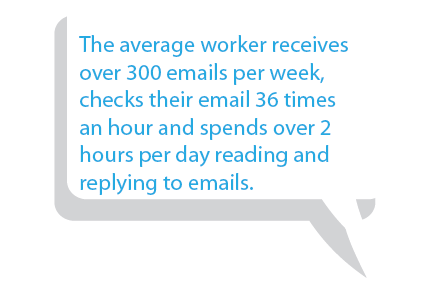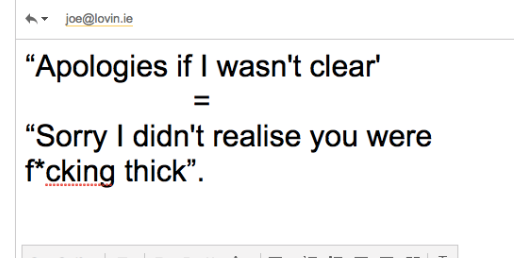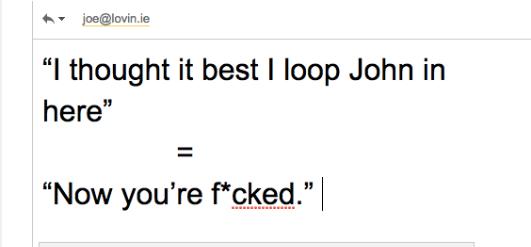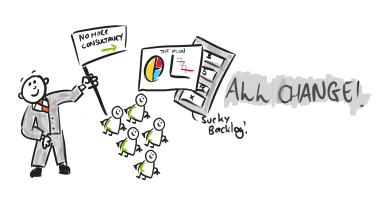Stop sending emails, for god’s sake!
Why do most people suck at email? What’s email like in your organisation? I often find people use it as a crutch now to prop up their own insecurities & lack of understanding sending far too long (TL;DR) emails which no one ever reads. Email can be weaponised often used to hang people, or to draw out things and information which should have never been surfaced in the first place. Email can also be used to confuse everyone by including everyone and their mother in the ‘To’ field, along with everybody else in the much loved ‘BCC’ field. Sound familiar? Do you love or hate email? I’d love to hear about how email is used in your organisation, let me know on Twitter (here). Obviously don’t send me an email about it! 🙂

To understand what you may be doing wrong in email, you first have to understand the history of it and how it was intended to be used. There’s a great article here going right back to day dot with the Guardian following on this with a similar article I found recently here but in a nutshell email was never intended to be used in the manner to which it is now. I watch lots of my clients lose hours of time and therefore money by being hostage to their inbox. Outlook is stuffed to the brim with emails that will never be deleted & yet never read again. Company exec’s hold on tight to 10GB PST files full of the shit they deem important, rely on it as a search tool and information store, and it staggers me how much the use of email has changed.
We’ve evolved then and use it now as a primary communication tool, certainly in business. You know this, I’m not teaching you anything new here. Whilst on the surface it’s efficient, it’s actually a sucker of time bringing you into a cesspool of dark dark woes whereby you can spend most of your day flicking through your inbox, or constantly refreshing your mail feed on your phone without actually ever getting anything done. Those nested conversations your manager never reads in the proper order subsequently replying to the first (and most out of date) message in the list, that frustrating? People mis-understanding because of the lack of intent and context in the written word, ever mis-understood an email, fired off a response & then realised you’ve got it so very wrong? Sound Familiar? Yes email is a pain and as far as I’m concerned, most businesses need training in it’s use. Certainly some of my clients make bad email an art form.
It’s selfish communication protocol, with people dumping tasks on one another by way of their email, in effect keeping everyone enslaved to a hot Outlook. Emails flowing in day, night, through the night. How many co-workers do you know who email out of hours, just to be seen as being ‘visible’ .
I have to say, if you’re sitting in bed sending work emails, (and let’s face it, you’re not that important), then you have something seriously wrong in your work life balance. You should read this blog here about getting organised.

Companies are even banning email because its such a draw on time, and often mis-used.
For one client, I’m using a cloud collaboration tool and task organiser, called Monday.com. Although these tools can be quite noisy to start with in terms of notifications & such like, over time, if enough people adopt, you see email communication drop as everyone keeps all comms relating to tasks within the platform itself. It creates much more freedom and tools like Monday.com (or Trello, or Basecamp or the myriad of others) are a great start at dealing with email volume.
But how do you deal with stupid people sending stupid emails?
Personally I’d like to use a bat. With nails in it. But HR aren’t too keen on that. So instead I’d ask people to follow these top tips
- Always read the entire thread of conversation before you reply to the first email in the chain (which is the oldest)
- Spend three times as long as you did writing the email checking it for spelling, grammar, context and relevance.
- Spend a bit more time asking yourself ‘is there a point to this email, or am I just making myself feel better by sending it’. Be really critical, what value is your email adding the conversation? Its almost always true the email you’re about to send doesn’t need to be sent.
- If it’s an important email, send it later. Come back to it and read it again, you’d be amazed how much you change words, and the way it’s written by given yourself some time to look back at it.
If the above is too much work and you just simply flop your big fat fingers on the keyboard and keep bashing out pointless email after pointless email, you’re simply not winning in life.
Don’t forget to use great tools such as Monday.com for collaboration & stay.off.the.email.





